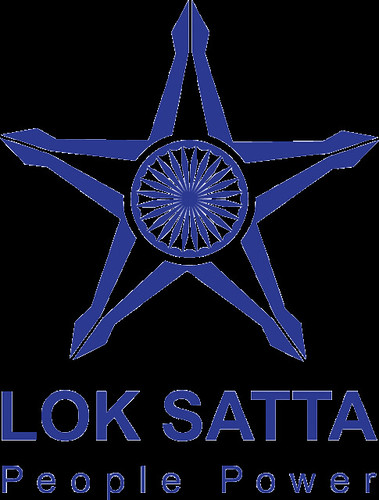Lok Satta along with International IDEA and Lokniti, held a Dialogue on Political parties on the 2nd and 3rd December 2005 at ASCI Bella Vista, Hyderabad.
Day one was divided into a welcome session and a post lunch session. The welcome session began with the presentation of a country report jointly produced by Lokniti and International IDEA. The presentation provided an overview on the functioning of the political parties and sought to explain the mechanisms of origins of political parties, leadership selection, their support base, membership, candidate selection, women’s representation and their sources of funding.
The post lunch tea session focused on the intricate relationship between money, muscle power and political parties. The session also discussed public disappointment with political parties, party leadership issues, lack of willingness among the parties to change and enable reforms, women’s representation, and internal democracy.
The participants were later divided into three groups. Each group was assigned a topic to discuss and present the next day. Day two consisted of presentations on the three topics namely, Political Party Structures and Organizations, Elections and Candidates and Political and Electoral System.
The final session involved active deliberations over the two prevalent election systems – the First-Past-The-Post (FPTP) and the Proportional Representation (PR). While most participants were convinced that the current election system of FPTP needed to be changed, some academics had reservations. Dr. Jayaprakash Narayan then presented the model of Mixed PR, which would constitute the best elements of both systems. It is in the parties’ interest to opt for an electoral system, which eliminates dependence on marginal vote in constituencies for victory. It is this desperation to garner the marginal vote, which compels parties to nominate those with unaccounted money, muscle power, and local political and caste links unrelated to public good.
The political participants present placed the ball in the civil society’s court and affirmed their willingness to examine suggested changes once the specific reform goals had been finalized and agreed upon.
Present at the event were representatives of Lok Satta, Prof. Suri (Nagarjuna University), Prof. Sandeep Shastri (Lokniti) and interns, Mrs. Sakuntala Kadirgamar and Ms. Maja Tjerntrom (International IDEA), Mr. Murthy and Leela Devi Prasad(JD(S)), Prof. Gopa Kumar and Shaji Varkey (University of Kerala), Bibhu Mohapatra (Association for Democratic Reforms), Mr. Prakash Sarangi (Hyderabad Central University), Dr. Venugopal Rao (Foundation for Rural and Social Development), and other participating political parties, academia, representatives from ASCI, Mr. L C Jain and the former elected representatives and civil society members from Nepal. The report from the event shall be uploaded soon on our website.

